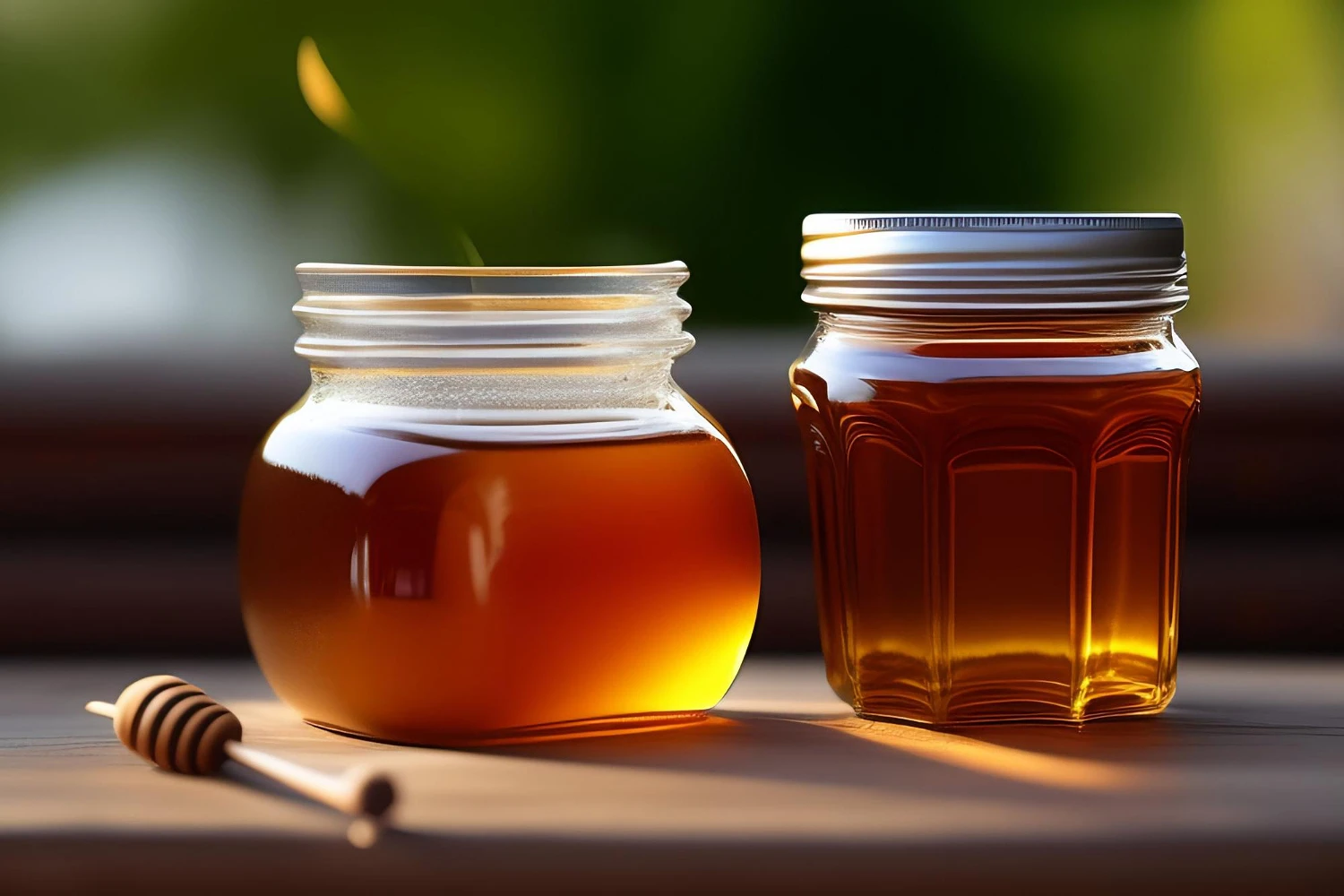Raw Honey Vs Organic Honey: Explore The Sweet Debate
In the realm of sweetness, honey has a royal position, casting its golden drops on all the sweetlovers out there. But while you are standing in front of this aisle, choosing between raw honey vs organic honey becomes a little more challenging.
Raw honey is extracted straight from the hive, unprocessed, and packed full of natural enzymes and health-promoting substances. Conversely, bees producing organic honey adhere to organic farming guidelines and thrive in a pesticide-free environment. Instead of blood-shedding, a lot of sweet granules are scattered through this dispute between organic honey, which comes with the natural nectar of flowers, and raw honey, which comes with the untouched purity of bee hives.
Key Difference Between Raw And Organic Honey
The primary difference between raw and organic honey lies in their production and processing methods. Raw honey is collected directly from the hive without undergoing heating or filtration, preserving its natural enzymes and health benefits.
In contrast, bees that adhere to organic farming standards and forage in pesticide-free environments produce organic honey, emphasizing beekeeping practices and the source of nectar. Raw honey remains unprocessed and unaltered, while organic honey is produced using sustainable beekeeping techniques, ensuring environmental benefits. Let’s see some major differentiation between these variations, which strengthens the debate between raw honey vs organic honey.
Processing
Raw honey preserves its natural enzymes and health-promoting components by being extracted directly from beehives without heating or filtering, requiring minimal processing. In contrast, organic honey must undergo some processing, including light filtration and potentially limited pasteurization, to meet the requirements for organic certification, which depends on its adherence to regulations for pesticide-free foraging and sustainable beekeeping, both of which are enforced through this processing.
Filtration
Raw honey retains pollen and other natural particles with minimal filtering, which is one of the major benefits of raw honey. In contrast, organic honey undergoes light filtration as part of the certification process, aiding in achieving a clearer look and meeting the specific requirements for organic honey, while still preserving more natural components than conventionally filtered honey.
Presence of Pesticides
The presence of pesticides distinguishes raw honey from organic honey. Bees that forage in pesticide-free areas produce organic honey which is a noted advantage of organic honey. In contrast, raw honey originates from diverse sources and may carry pesticide residues if bees feed in pesticide-treated locations. However, due to its minimal processing compared to non-organic honey, raw honey generally carries a lower risk of pesticide contamination.
Beekeeping Practices
Beekeeping practices are a core aberration among raw honey vs organic honey. Raw honey production allows for diverse beekeeping techniques with minimal hive management regulations. In contrast, organic honey production strictly adheres to environmentally friendly and sustainable beekeeping practices. These practices promote biodiversity, bee health, and compliance with organic agricultural standards, resulting in honey that upholds sustainability and eco-friendly values.
Source of Nectar
The source of nectar is a significant difference between organic and raw honey. Organic honey is produced using specific nectar plants in compliance with organic standards, ensuring a trackable and pesticide-free source. In contrast, raw honey is typically less regulated in terms of nectar plant origins, potentially originating from a more diverse range of sources and offering a varied flavor profile influenced by various local flora.
Appearance
Raw honey exhibits a distinct appearance compared to organic honey. The presence of natural particles and pollen gives raw honey a cloudy look, signifying its unprocessed nature. Conversely, organic honey typically appears clearer as it undergoes light filtration as part of the processing required for organic certification, meeting specific criteria. The crystal clear appearance is one of the advantages of organic honey. These variations in appearance reflect the differing levels of processing between the two honey types.
Nutrient Content
Raw honey boasts a distinct nutritional profile when compared to organic honey and is a high benefit of raw honey. Its minimal processing means raw honey retains higher levels of natural enzymes, antioxidants, and potential health benefits. In contrast, organic honey, while still nutritious, may exhibit slightly reduced quantities of these components due to the light filtration and pasteurization mandated for organic certification. These disparities in nutrient content between the two honey varieties illustrate the influence of processing.
Is raw honey better than organic honey?
The question of which type of honey is better is inevitable when making a comparison between raw honey vs organic honey. Whether raw honey surpasses organic honey depends on individual preferences and priorities. Health-conscious consumers favor the benefits of raw honey due to its unprocessed, natural
state, which preserves enzymes and potential health benefits. On the other hand, environmentally conscious buyers are drawn to the advantages of organic honey, which meets stringent requirements, guaranteeing sustainable beekeeping practices and pesticide-free nectar sources.
Ultimately, the choice hinges on whether one prefers a cleaner, regulated, and eco-friendly production process (organic honey) or prioritizes preserving the natural components and potential regional variations of honey (raw honey). Both options offer unique advantages; determining which is “better” is subjective.
Conclusion
The exploration of the “Raw Honey vs. Organic Honey” debate has unveiled a realm of flavors where personal priorities and individual preferences take the lead. However, it is important to consider the quality factor before buying your honey from bulk honey suppliers, regardless of whether it is organic or raw. Those seeking to embrace the full spectrum of honey’s health benefits and regional variations will find raw honey appealing due to its unadulterated, natural allure. On the other hand, organic honey, with its rigorous standards and eco friendly practices, offers an eco-conscious choice. The final decision? Ultimately, your personal values and what you seek in a jar of honey determine the outcome

Basil Thomas
About the Author
Basil, the visionary behind PureLeven, seamlessly fuses his hands-on farming experience from his parents' labor. Guided by nature's lessons, Basil directly sources premium products from Kerala's farms, embodying a profound commitment to ethical commerce, sustainability, and authentic quality.
Email: purelevenexim@gmail.com
Phone/WhatsApp: +91 8075519579

